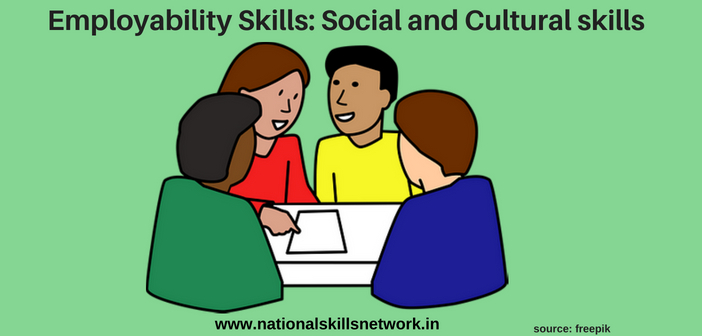10 Essential Tips on How to Become Socially and Culturally Skillful
Have you experienced awkwardness when interacting with a colleague who is culturally different from you? Have you realized that certain words and gestures can be offensive or insensitive in some cultures?
As workplaces become diverse globally, it is important for each one of us to have a high level of cultural and social awareness. Employability skills in today’s rapidly changing work environment requires cultural sensitivity skills to be an important part of our experience and knowledge.
What are these skills?
Your social and cultural skills will determine your ability to understand and respect cultural and social differences. Depending on nationality, ethnicity, religion and other factors, the attitudes, viewpoints and customs of people will differ. Being aware of this is crucial to help you accept, respect and embrace these differences.

Let us look at 10 tips to develop and practice social and cultural skills:
- Make efforts to understand different ways of communicating, different values and traditions etc. in different cultures. What is considered normal behaviour or action in your culture, may not be acceptable in some cultures and could even be offensive in other cultures.
- You shouldn’t make assumptions about other people from certain religions or nationalities. It is also wrong to make judgements about people until we understand their culture.
- Have an open mind and be flexible. Respond with an open mind to new ideas. Flexibility when dealing with different work holidays based on different national or religious festival holidays is important. This helps in working effectively with people from various socio-cultural backgrounds.
- Be empathetic. We need empathy if we are going to understand the other person. Do not try to impose one culture onto another.
- Understand what kind of body language and behaviour is considered derogatory or disrespectful. Is a hand shake acceptable or bowing your head is respectful? This helps reduce conflicts and misunderstandings at the workplace.
- Never use discriminatory terms or language or be offensive. This can also lead to legal ramifications in certain cases and not just you, the employee, but also your company will suffer. Read and learn what the politically correct alternatives that you can use are.
- Keep language simple for effective communication. You can also try to learn new languages and teach your own, even just the basics, in order to help in better communication. However, do not make fun of anyone’s accent. Avoid speaking in your native language among colleagues who do not understand it.
- Cultural awareness begins with self-awareness. Observe intently, not just your own actions that could be culturally imbibed, but the actions of others. This helps in responding to others rationally.
- Celebrate diversity. Embrace the differences between you and others. There will be people of different age groups and generations, older and younger; people of different gender and sexual orientation; people from different ethnicities and race. Even if you do not agree to the views of people from different cultures, you can always respect them. This enables effective collaboration and everyone can work well together.
- Correct anyone who displays social and cultural insensitivity. You must discourage sexist and racial jokes. If a co-worker is unaware, speak to them and help them understand. Such efforts can foster respect, tolerance and equality.
Being socially and culturally aware will help you in developing empathy, becoming inclusive and embracing diversity. This will enable you to make informed decisions not only at your workplace, but also across the various social spheres of your life.












